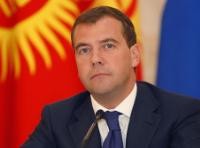Unlike his week-long trip to South America in late November, peripatetic Russian President Dmitry Medvedev's recent two-day visit to India attracted little notice in Washington -- and for good reason. The Russian and Indian governments did sign important agreements, but none that marked any fundamental transformation in their bilateral relations, or that directed it in ways that threaten American security interests. If anything, the trip highlighted the fact that countering terrorism in South Asia is a shared goal of Russian, American, and regional officials, thereby raising the possibility of enhanced Russian-American security cooperation in this important area. This was Medvedev's first trip to India as Russia's president. Previously, India's prime minister, Manmohan Singh, had visited Russia for the annual Russian-Indian leadership summit in November 2007. Despite leaving India one day early (due to the death of Russian Patriarch Alexei II, the head of the Orthodox Church), Medvedev accomplished all his main objectives: reaffirming Russian-Indian solidarity against terrorism, sustaining Russian arms sales to India, expanding bilateral nuclear energy collaboration, and pursuing other forms of political, economic, and cultural cooperation. Medvedev and Singh signed 10 intergovernmental agreements to deepen Russian-Indian cooperation in these and other areas, such as air travel, tourism, and cultural, scientific, and technical exchanges.
Global Insights: U.S.-Russian Counterterrorism Cooperation after Mumbai

